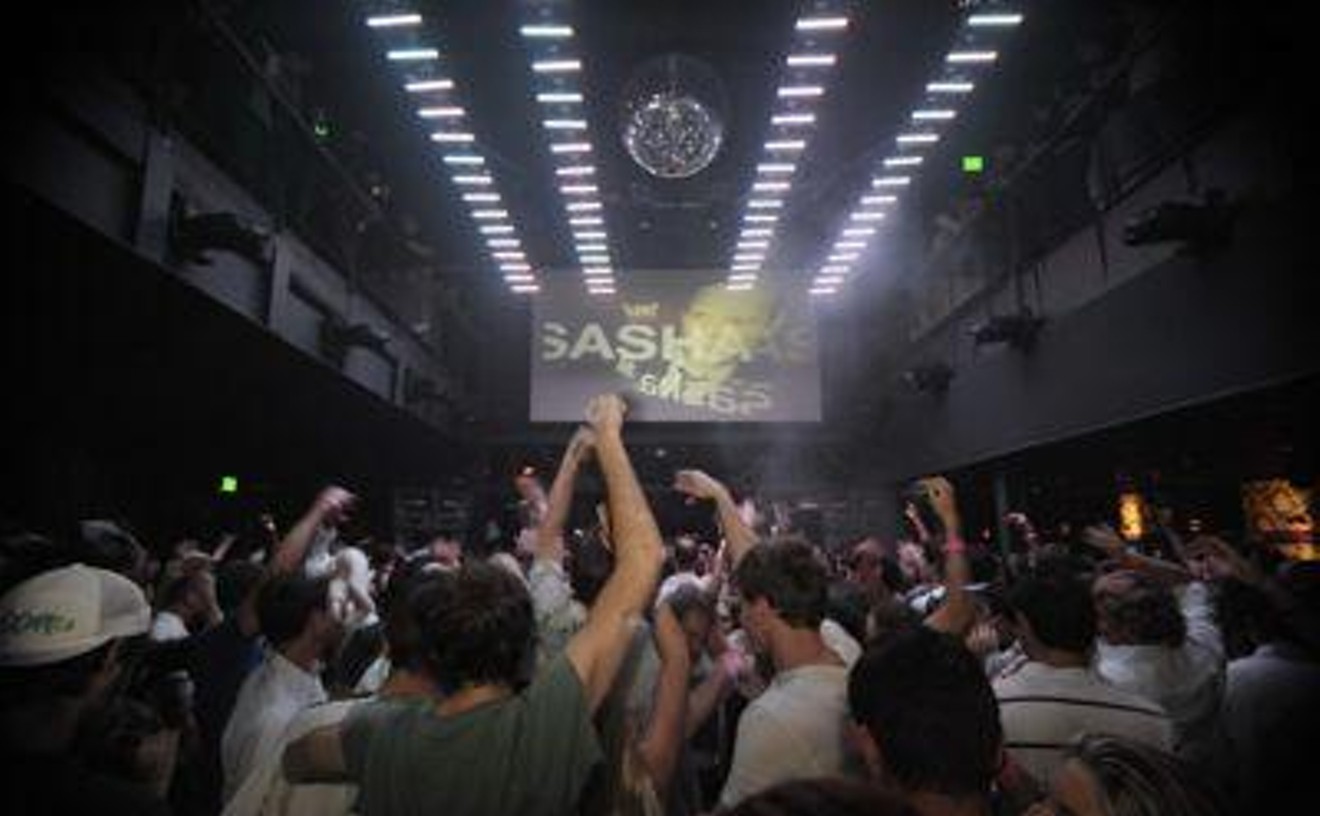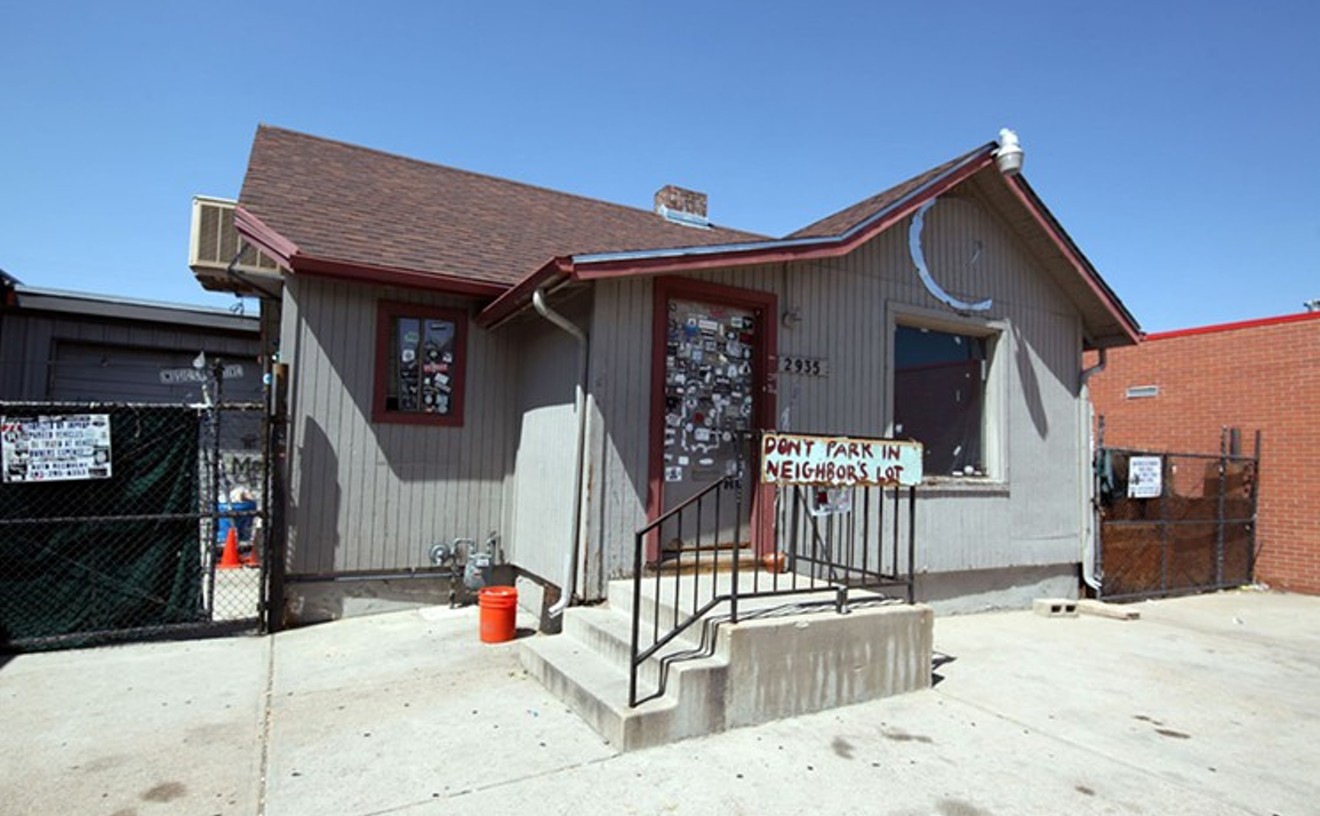We're guessing the ancient pot that dispenses bitter coffee has been around since artistic director Ed Baierlein founded Germinal Stage Denver in 1973, and went along for the ride when he moved the company to West 44th Avenue 26 years ago. The man isn't fond of change. But over the years, he's staged some of the most interesting theater in town in his tiny, intimate venue, everything from Ibsen to Albee, Shaw to Arthur Kopit, gut-busting farce to thoughtful tragedy. The walls of the auditorium are lined with photographs from past productions, in which you can see a generation of Denver actors coming of age — and some growing old. But the building is in need of repair, and Baierlein, now 69, is reluctant to undertake the Herculean task — so he's sold the place to a real-estate developer. The final season, which includes Long Day's Journey Into Night, starring Baierlein himself, ends in August. Baierlein is looking for a new space, and this time he plans to rent rather than buy — but we're sure the coffeepot will go with him.
Best Conceptual Show
Between Chaos and Order
Best known for his "Face the Sun," a permanent installation on Tennyson Street, conceptual artist Kevin Curry made quite a splash during the years he lived in Denver. And although he is now in Florida, Curry was the subject of a compelling solo at Rule Gallery (which is now sadly shuttered). Between Chaos and Order was related to "Face the Sun" in that both featured Curry's signature cut-up found signage. By cutting up the signs and reassembling them, he rendered the lettering unintelligible — and thus was able to overtly refer to various styles, including abstract expressionism and minimalism.
Best Concert
Refused
Nearly fourteen years after an aborted tour in support of its epochal and influential album The Shape of Punk to Come, Refused reunited for another tour and the chance to properly present the music live. The black curtain masking the Ogden stage, with clear letters spelling out the band's name and a white light shining through, helped build anticipation for what would follow once that curtain dropped — and the band's visceral performance was exhilarating from beginning to end. Vocalist Dennis Lyxzén was a lightning rod of passion and inspiration who never failed to make sharply observed, humorous, incisive social commentary — all without sounding like he was giving a misguided lecture. He and the rest of the band seemed to possess a superhuman level of endurance that never flagged, and fans absorbed that energy, leaving the show feeling reinvigorated about life.
Best Concert Debacle
Wyclef Jean 4/20 show
The free show featuring Wyclef Jean and hosted by the University of Colorado at the Coors Events Center last April was designed to stamp out unofficial 4/20 observations on campus. The concert was open only to students — and once the doors closed, those students would not be allowed to leave the venue for the duration of the entire two-hour show. The result of this draconian restriction? The venue, which holds around 11,000, drew a paltry 400 people...by the most generous guesstimate. Meanwhile, the pot party went on outside.
Best Dance Club
Beta

Since opening in 2008, Beta has shown time and again that it's the best dance club in the city. Sure, a big part of that is having a state-of-the-art Funktion-One sound system that's unrivaled by virtually any club in North America, but the other reason Beta has been named one of the best dance clubs, here and around the world, is the caliber of talent it brings in. On any given week, there's bound to be at least one internationally renowned DJ on the calendar; in the past few years, that list has included Paul Oakenfold, Richie Hawtin, Deadmau5, David Guetta, Skrillex and John Digweed, for starters.
- 1909 Blake St., Denver, 80202 Map
- 303-383-1909
- www.betanightclub.com
Best Debut for a Newly Local Artist
Linhas Polimórficas
Last summer, the Denver Art Dealers Association mounted a citywide event called "Introductions," featuring work by artists new to Denver. A standout in the series was Linhas Polimórficas, a solo dedicated to Rosane Volchan O'Conor, a Brazilian-born artist who recently relocated to Boulder. The show was made up of an installation and works on paper, and the relationship between the two was pretty obvious, with the former like a 3-D version of the latter. Both kinds of work included dense skeins of scribbled lines, but for the installation, some of them were done in custom squiggles of neon, while in the prints they were done with inks. O'Conor had originally been a budding scientist, then a musician before turning to visual art, and these previous pursuits are still referred to in her impressive artwork.
Best Deeply Feminist (in So Many Ways!) Production
In the Next Room, or the Vibrator Play
Every now and then, Equinox Theatre, known primarily for camp humor, gets serious — as it did last year with Sarah Ruhl's In the Next Room, or the Vibrator Play. A play about orgasms and Victorian attitudes toward women, this would have been a gutsy choice for any company, let alone one with severely limited resources, but director Deb Flomberg took it on wholeheartedly. She scoured antique shops and put together a display of antique vibrators for the lobby, assembled a good cast, called in a feminist historian to discuss sexuality in Victorian times, and asked her actors to search their souls for the deepest and most honest way to perform the scripted orgasms. The result was a celebration, sweet and sexy and tender.
Best DIY Venue Makeover
Seventh Circle Music Collective

When Ethan McCarthy stepped away from Blast-O-Mat, Aaron Saye, a longstanding supporter of local underground culture and music, stepped in and prevented the building that housed it from potentially returning to being the auto-repair shop it had been in its previous life. Recruiting a group of volunteers from the underground scene, Saye transformed Blast-O-Mat into Seventh Circle Music Collective. The initial mission of the newly christened venue was to provide a safe space for all sorts of music and a meeting place for cultural and artistic endeavors, and it appears that Saye and company have kept true to that goal. As host to numerous shows each week, Seventh Circle has filled an important gap for those who prefer an alternative avenue for presenting their music.
- 2935 W. 7th Ave., Denver, 80204 Map
- 7thcirclemusiccollective.org
Best Drag Pageant
Miss Queen of Aces

Since its start as the annual signature fundraiser for the Colorado Gay Volleyball Association four years ago, the Queen of Aces pageant has grown into an entity all its own. For a chance to win a sparkling crown and carry out do-good missions throughout the year, this old-fashioned drag blowout attracts contestants of all impersonation skill levels. The costumes may be imperfect and the talent and lip-syncing portions of the pageant a little lopsided, but each queen gives it her all — and the audience applauds the effort.
- 700 E. 17th Ave., Denver, 80203 Map
- 303-832-1333
- m-uptown.com/
Best Drag Performance
Steven Cole Hughes
Is He Dead?
Steven Cole Hughes played Millet in Is He Dead?, a Creede Repertory production presented at the Arvada Center, but he spent most of his time in drag as Daisy — and he did it deliciously. Despite the frilly dress and golden wig, he avoided the usual mincing walk, smeary clown lipstick and high-pitched giggle. Millet-Daisy was earnest and bemused, and trying desperately to remember her backstory — whether she was married, for example, and how many children she had. Eventually, surrounded by suitors offering jewelry, she began to relax and enjoy the power of the skirt. Best of all was her drawn-out, coltish, rocking attempt at a curtsy, which had the audience almost puking with laughter.





